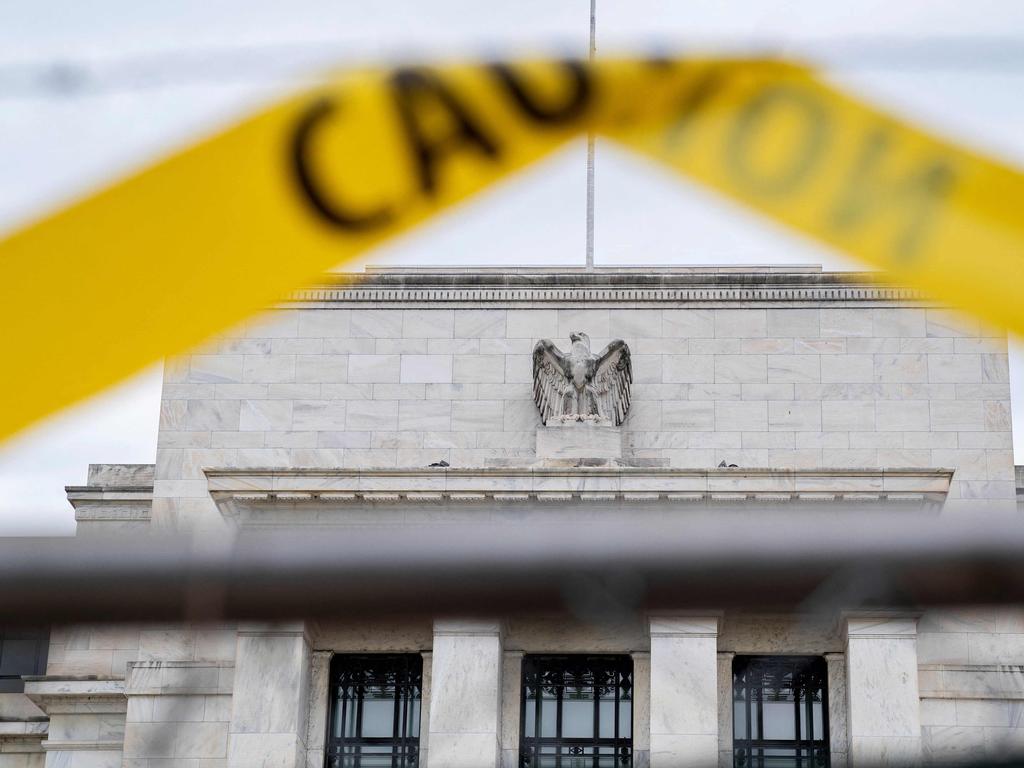Reserve Bank of Australia warns high inflation and rising interest rates a risk for borrowers
The Reserve Bank warns high inflation and rising interest rates could see a vulnerable group of borrowers fail to meet repayments as it warns global financial stability risks have increased.
Global financial stability risks have increased amid tighter financial conditions and rising uncertainty amid sharp falls in financial asset prices and increased volatility alongside rising interest rates and a lower growth outlook, according to the Reserve Bank.
Its Financial Stability Review notes persistently high inflation has prompted an unusually rapid and synchronised increase in policy rates in advanced economies, and growth forecasts have been revised down sharply and geopolitical tensions have severely disrupted energy market.
The RBA cautions that higher inflation and rising interest rates will make it difficult for some borrowers to meet debt payments, and a “small group” of borrowers could fail to meet debt payments due to low savings and high debt.
But households in aggregate are “reasonably well-placed to adjust” to a period of higher interest rates, and most indebted households are well-placed to manage the recent increase in their housing and other living expenses.
They have had sizeable spare income available after meeting their debt and basic living expenses, and many have accumulated large savings buffers over recent years, according to the review.
Moreover, households and business balance sheets are in “strong shape overall.”
“Strong employment growth has supported household incomes and the broader pick-up in economic activity has underpinned increases in business incomes across industries relative to the lows early in the COVID-19 pandemic,” the review says. However, financial stress “could be more widespread if economic activity turns out to be much weaker than expected.”
In its “baseline” scenario, where the cash rate rises broadly in line with current market pricing, peaking at around 3.5 per cent, GDP growth slows as higher interest rates weigh on spending, the unemployment rate is assumed to increase slightly but remain low by historical standards, and property prices are assumed to fall by 10 per cent from peak to trough.
In its “severe scenario”, where the market-based interest rates increase by an additional 300 basis points than in the baseline scenario, the economy deteriorates substantially, with GDP falling by 4 per cent and the unemployment rate increases to around 11 per cent over about three years.
In that scenario, property prices fall by 30 per cent, reflecting the larger increase in interest rates and the more severe decline in economic activity, and banks’ net interest margins narrow by 50 basis points, reflecting an additional increase in the cost of funds for banks that is not passed on to borrowers.
The risks from cyber-attacks and climate change also remain a focus of financial regulators.
The risk of cyber attacks is “elevated, and a significant incident could have implications for financial stability”, according to the review.
Financial institutions and policymakers are “progressing their work on managing risks that originate outside the financial system, such as cybercrime and climate change.”





To join the conversation, please log in. Don't have an account? Register
Join the conversation, you are commenting as Logout